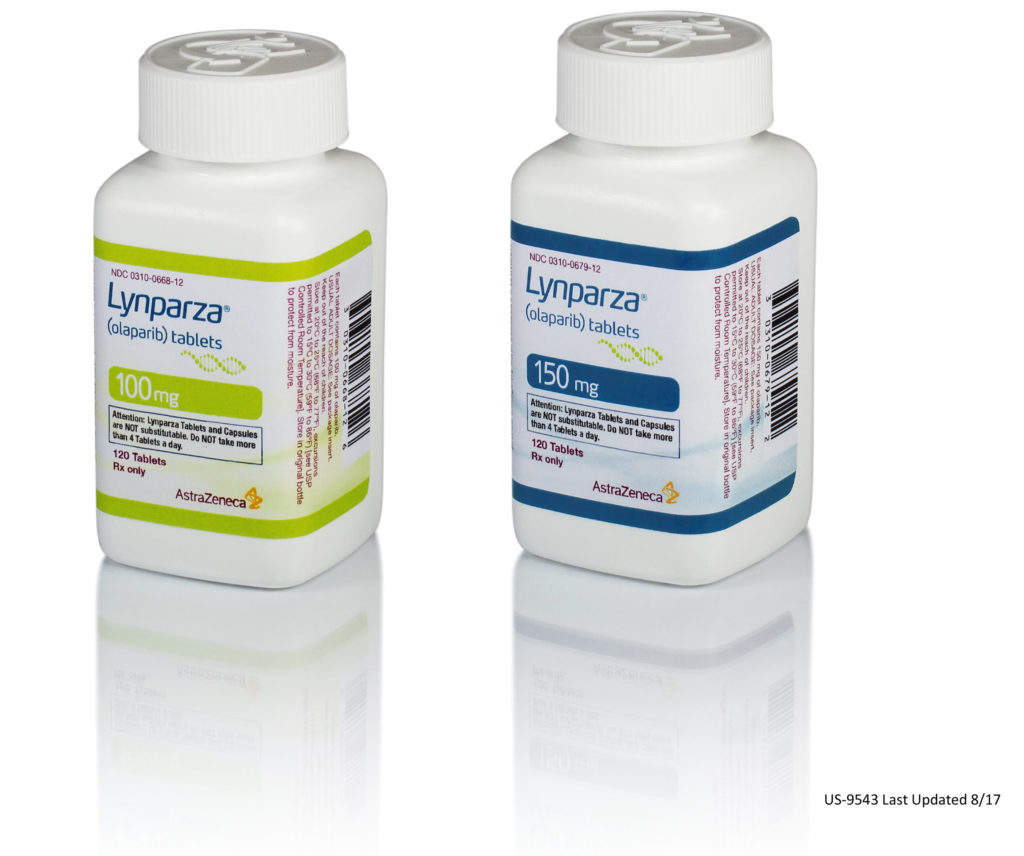The European Commission has expanded the approval of AstraZeneca and MSD’s Lynparza (olaparib) to cover the treatment of a form of advanced breast cancer.

Image: Lynparza tablets. (Credit: AstraZeneca)
Subscribe to our email newsletter
The latest approval for Lynparza in Europe is for its use as a monotherapy for adult patients with germline BRCA1/2-mutations (gBRCAm), and who have human epidermal growth factor receptor 2 (HER2)-negative locally-advanced or metastatic breast cancer.
As per the licensed indication, patients should have been subjected to previous treatment with an anthracycline and a taxane in the neoadjuvant or metastatic setting unless they were not suitable for the treatments.
Furthermore, patients having hormone receptor (HR)-positive breast cancer whose condition also progressed on or after prior endocrine therapy, or be considered to be not suitable for endocrine therapy are eligible for treatment with Lynparza.
AstraZeneca oncology business unit executive vice president Dave Fredrickson said: “With this approval, Lynparza provides patients throughout the EU with a targeted and oral chemotherapy-free treatment option for a difficult-to-treat cancer.
“It also reinforces the importance of testing for biomarkers including BRCA, hormone receptor and HER2 expression, helping physicians to make the most informed treatment decisions for patients.”
The approval of the drug was based on the findings of the phase 3 OlympiAD trial which evaluated the drug against physician’s choice of chemotherapy.
In the late-stage trial, Lynparza gave patients a statistically-significant median progression-free survival improvement of 2.8 months compared to chemotherapy. Patients subjected to the drug had shown an objective response rate (ORR) of 52%, which was more than double the ORR for those in the chemotherapy group, which was at 23%.
MSD Research Laboratories senior vice president, global clinical development head Roy Baynes said: “In the OlympiAD trial, which supported this approval, Lynparza demonstrated a meaningful improvement in progression-free survival compared to chemotherapy in patients with germline BRCA-mutated metastatic breast cancer. We look forward to making this new option available across the EU, where we hope it will improve outcomes for many patients.”
Lynparza is a poly ADP-ribose polymerase (PARP) inhibitor, which has been designed to selectively kill cancer cells by exploiting DNA damage response (DDR) pathway deficiencies like BRCA mutations.
The latest approval for the drug is its third in the European Union. Last May, the drug was approved for the treatment of patients with platinum-sensitive relapsed ovarian cancer.
Its first European approval was granted in late 2014 for the treatment of platinum-sensitive relapsed BRCA-mutated (germline and/or somatic) high grade serous epithelial ovarian, fallopian tube, or primary peritoneal cancer.
 Advertise With UsAdvertise on our extensive network of industry websites and newsletters.
Advertise With UsAdvertise on our extensive network of industry websites and newsletters.
 Get the PBR newsletterSign up to our free email to get all the latest PBR
news.
Get the PBR newsletterSign up to our free email to get all the latest PBR
news.

